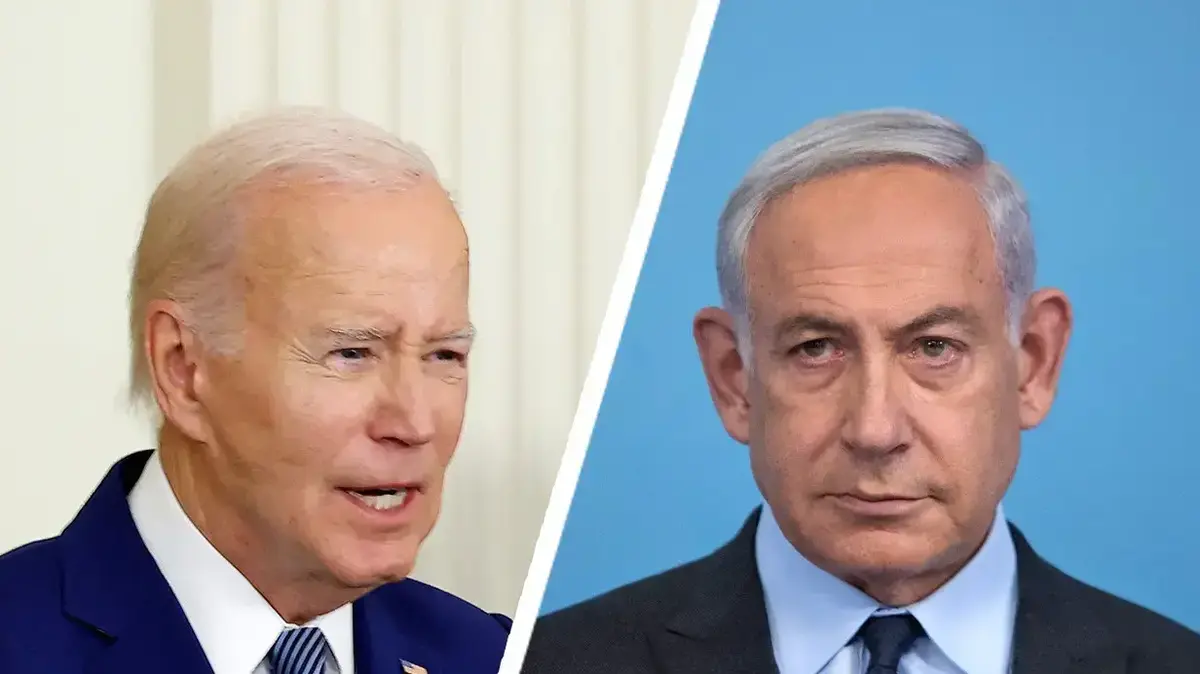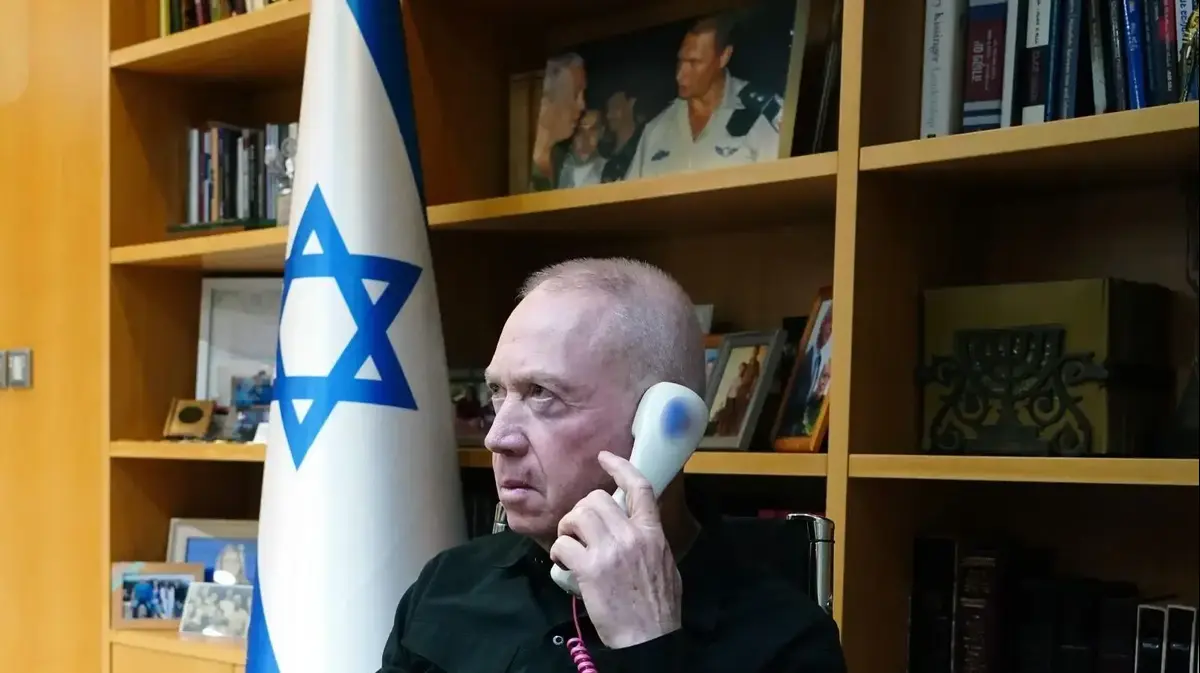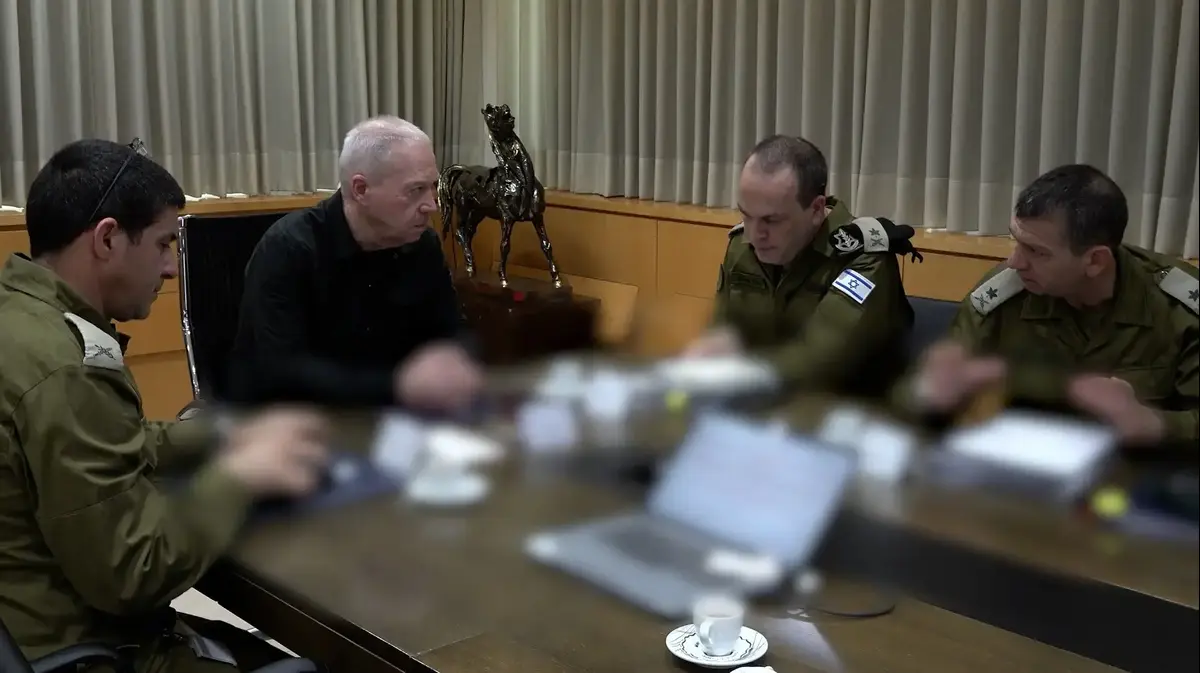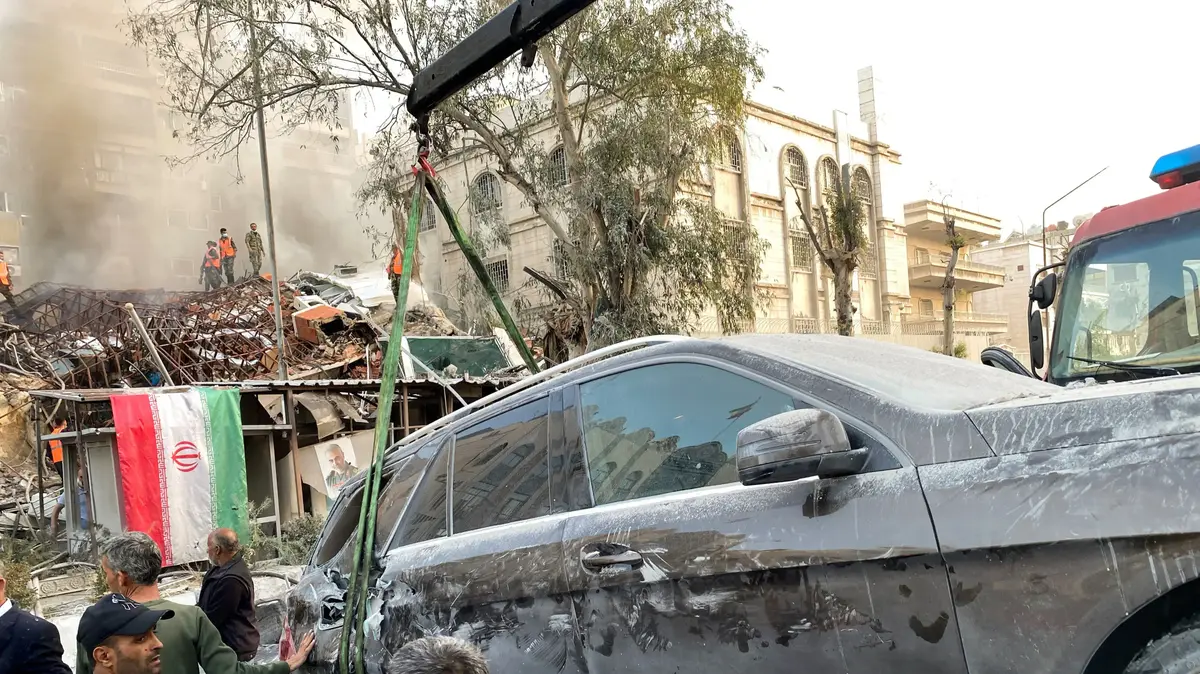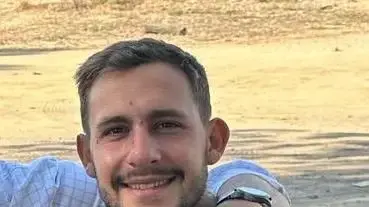This conversation was recorded by the two participants, but Elon did not remember that he was not the only one who recorded the things.
Ami Ilon (Photo: Yoav Itiel)
A few months ago, Ami Elon launched a new book by his pen, "The fire of our forces - how Israel became its own enemy and the hope for its future".
Elon - a major in the reserves, a former minister, the former head of the Shin Bet and one of the few martyrs in our history who was decorated with the decoration of heroism - lays out his worldview, which is deeply rooted in the left corner of the political map, and does this through his life experience, through his memories of various events and through meetings he had with Various personalities with different opinions, Jews and Arabs, starting with Jibril Rajov and Khalil Shakaki, for Derech Meir Shalu, and ending with Pinchas Wallerstein and Rabbi Yitzhak Shapira, authors of the book "The King's Torah".
Elon sat in Rabbi Shapira's house in Jerusalem for about two and a half hours. He talked with him, exchanged opinions with him, listened to his positions and devoted a chapter to their meeting in his book. This conversation was recorded by the two participants in it, however, in view of what you will read here later, it is impossible to rule out the possibility that Aylon, when he sat down to write the book,
Be that as it may, when the book was published, Elhanan Gruner of the Jewish Voice site, a student of Rabbi Shapira, compared the recording of the conversation with the book it was based on, and was amazed.
In the last few days, I also spent long hours listening to things and carefully comparing what was said by the two in practice, and what Elon wrote in the book.
There is no other way to say it.
Ami Ilon, in a clumsy and clumsy attempt to present Rabbi Shapira as a Nazi, as he recently described in a press interview, grossly fabricated significant parts of the conversation.
Tried to paint him as a devil.
Rabbi Yitzhak Shapira (Photo: Omer Miron)
What does fabric mean?
In some cases, Elon quotes in quotation marks, from the mouth of Rabbi Shapira, things that he did not say at all.
In another part, he confesses from his heart issues that did not even come up in the meeting, and quotes in connection with them things that Rabbi Shapira allegedly said to him, and things that he himself, as it were, replied to him.
In several key points that did come up in the conversation, he blatantly distorts the rabbi's positions, turning them almost 180 degrees, to paint the rabbi as Satan.
This is exactly what Elon does in describing the atmosphere at this meeting.
As will be detailed later, anyone who listens to the conversation will have the impression that it took place in a relaxed, respectful atmosphere, and often with a lot of smiles.
Those who read the book, on the other hand, will be convinced that Aylon was sitting in the house of a monster, counting the minutes until the end of the "shocking meeting", as he defined it in the book, and constantly looking for a window through which he could escape to the street.
I had to listen to the conversation three times, and transcribe it word for word, to believe that a man like Elon, with a public record like his, would enjoy doing such a thing.
To spread before the reader a collection of quotes that he made up from his mind and that were never said.
to present as central issues in the conversation, issues that did not even come up in the conversation.
And above all to establish that the rabbi supports the murder of innocents, when the rabbi explains to him at length and patiently the complete opposite.
More in Walla!
Sa'rat Libeskind: "The left cannot be allowed to look from the side and eat popcorn"
The spokeswoman realized that she had nothing to fear, and began the containment battles against the new government
Redheads and other minorities
Dr. Ado Netanyahu
Shachel's Triple Safe: 3 devices that can save lives - at a special price
killing babies
Elon read what was written in the press about Rabbi Shapira and the "King's Torah" and tried to understand, throughout the conversation, whether Rabbi Shapira supports the indiscriminate killing of Gentiles, including babies who have not sinned.
And this is how he describes the part of the conversation between them in his book:
"There are some things I don't understand," Elon begins.
"In the section where you allow the killing of Arab babies, you list the justifications for this and claim that even if they have not sinned, they may grow up and be evil like their parents."
Rabbi Shapira: "What don't you understand?".
Elon: "Like I said, how do you reconcile the permission to kill babies with 'thou shalt not murder'?".
Rabbi Shapira: "There is nothing to settle."
Elon: "I hear there is."
Rabbi Shapira: "No, because according to the Torah and the consensus among our sages, the absolute prohibition of murder applies only to Jews, it does not apply to gentiles."
Elon: "So you claim that murdering gentiles is not a problem?".
And Elon sums up his shock at the news.
"Not even in my wildest dreams did I think that Judaism, which first presented the concept that every person is created in the image, would allow cold-blooded murder based on ethnic criteria. I was too shocked to answer."
Later, after Aylon says that the rabbi further explained to him that "if the gentiles rise up against us to kill us, our moral duty - according to their rules - is to help kill them, and not only terrorists or soldiers, but also women, old men and children," he concludes: "In what an upside down and crazy world You're alive, I thought."
Well, really difficult things, if they were said, but they were not said.
Furthermore, what Elon did in this section, which he invented, was a real scoundrel.
Why?
Because these questions, which Elon floods in his book, were indeed discussed in his conversation with Rabbi Shapira again and again.
Elon was difficult, Rabbi Shapira spent a lot of time explaining to him and answering him in a relaxed manner, and even for one moment it was not possible to imagine any connection between the position presented by the rabbi and the way in which Elon presented it in his book.
Elon, it should be said, admitted time and time again in the conversation that he is not a great understander of complex Jewish texts.
"I read the King's Torah, I said I wanted to understand, and I read and realized I didn't understand," he once said.
"Everything related to Judaism, you will teach me," he said elsewhere.
Towards the end of the meeting, just before he asked to summarize things, he added: "I say this with a great degree of humility, out of lack of knowledge."
But ignorance and humility cannot be an excuse for such blatant lies.
Yes, Rabbi Shapira came back and explained to Elon explicitly that it is forbidden to kill a Jew just like that and it is forbidden to kill a Gentile just like that, but that the prohibition to kill a Jew is based on one verse and the prohibition to kill a Gentile is based on another verse.
For one moment it was not possible to imagine a connection between the position presented by the rabbi and the way in which Elon presented it in his book.
Elon in the primaries (Photo: Sharon Bokov)
"The words in which there is the prohibition to kill a gentile are not 'thou shalt not murder', there it is only about Jews," explains the rabbi, "and the words 'shed a man's blood, in a man his blood shall be shed', these are the words from which there is a prohibition to kill a gentile."
Shapira spent a lot of time explaining to Elon the halachic nuances that arise from each verse, but the bottom line presented by Elon, according to which Rabbi Shapira permits and even requires killing gentiles, including women, the elderly and children, is nothing more than a wild invention that is the complete opposite of the explanation he received.
"...Just as a Gentile is not allowed to kill a Gentile, a Jew is also not allowed to kill a Gentile," the rabbi told him.
And the same is true of Elon's involvement in the matter of killing babies.
Elon invents and attributes to Rabbi Shapira a position opposite to the one he himself presented to him, only so that he could later say in an interview to "Globes": "Rabbi Shapira actually said a Nazi statement, like the great Nazis. They explained that the Jews were the enemy and murdered them as babies because it was clear that when they grew up they would be the enemy That's how Rabbi Shapira said."
You have to listen to the conversation to understand that Alon is indeed pressuring Rabbi Shapira in order to get this sentence out of him, but Shapira insists on explaining the opposite to him.
There is no permission to harm the enemy's babies just like that, who are completely innocent, who are not sane and who cannot be attributed malice, except in extreme cases where there is no choice, when, for example, it is about those who constitute a "human shield" that endangers the lives of soldiers or civilians.
"Shafira goes too far," writes Elon, "when he specifies that there are interpretations that it is permissible and even necessary to kill a Palestinian baby who was fed breast milk, since it is clear that he will grow up to be a sinner like his parents."
The facts: Beyond the fact that Shapira didn't talk about Palestinians at all, he didn't go anywhere far.
The opposite is the son of the opposite.
He does explain that there are commentators who can be understood in this way (and quotes one of them who lived about a thousand years ago), but makes it clear again and again that he himself understands their words completely differently.
By the way, the rabbi has an interesting moral criticism of the Israeli law in use today, which he voices in another part of the conversation.
"If a person is told 'kill so-and-so, otherwise - we will kill you', (according to Judaism - KL) he must not kill so-and-so.
According to the current law in the State of Israel, he is allowed.
This is called the defense of necessity.
Is it humane?
After all, it comes from where I am first.
This is what gave rise to individual rights.
They gave birth to the fact that you are not obligated to the other." "Okay," answers Elon, "a question." "We adopted the laws of the Gentiles and this is reflected in this point," concludes the rabbi.
Theocracy and Apartheid
But let's get back to the book.
"I shared with Shapira my belief that the peace process that began in Madrid and continued in Oslo, despite all the mistakes made during it," says Elon in his book, "is the way to preserve the Jewish and democratic identity of the State of Israel."
In the next line he describes the rabbi's reaction to the words.
"In the middle of my monologue, the smile disappeared from his face and he examined me as if I were a criminal."
It is perfectly fine if Elon wants to make an effort to paint Rabbi Shapira as a rude man, but this whole section was not and was not created.
Eilon didn't tell about Madrid and didn't talk about Oslo and didn't mention mistakes that were made, therefore the description of the rabbi's harsh reaction to the words, which Eilon said he didn't say at all, didn't exist and wasn't created either.
This is also the case when Elon mentions in the book, in an exact quote, in quotation marks, how he told Rabbi Shapira about Rabbi Yonatan Zaks, Rabbi Benjamin Lau and Prof. Moshe Halbertal, who define Judaism, to his taste, similarly to the way he defines it.
This section is also a complete invention.
None of the three were even mentioned in the conversation.
Later, Elon again tries to portray the rabbi as an extremist, and tells from his mouth, again with an exact quote, between Gershiim, what the rabbi allegedly said to him: "In the Oslo Accords, we did not hand over parts of Eretz Yisrael to Arafat as occupiers, because you cannot occupy what belongs to you by right. We gave territories In exchange for peace and security, and the Palestinians responded with murder, destruction and pogroms."
And that's ridiculous.
Because not only were these things not said at all in the conversation, the topic they were dealing with did not even come up, and it was all a figment of Elon's imagination.
This did not prevent Elon from adding at the end of the words, those that were not said at all, his conclusion from them: "I thought the rabbi was distorting history, but I didn't answer because I didn't want the debate to distract us."
And Elon continues and quotes in quotation marks, word for word, the rest of the words, which as mentioned were not said.
"There is another reason why what you said is not humanism," said the rabbi, "humanism is related to justice, right?".
"I nodded," describes Elon, "
Here too, it is impossible to know what the rabbi thinks about the motives of the Palestinians, and how righteous he is in their case, because this topic did not come up for even one moment in the entire conversation between him and Elon.
An invention from start to finish.
And Elon continues on, on his way to another quote that was supposedly said by the rabbi, and which in reality did not exist and was not created.
"We all know that there can be no contradiction between justice and the Torah. So, how is it possible that justice requires the people of Israel to betray the Land of Israel, thus turning against the Torah."
And Ilon concludes: "He did not say this in a fanatical tone, yet he presented his position as an unquestionable truth."
Rabbi Shapira's book (photo: Yehoshua Breiner)
As mentioned, the whole section was Elon's fiction, none of the things that were quoted in quotation marks were said by the rabbi, and therefore, the description of the "fanatical tone" in which the things were said, is nothing but pathetic and embarrassing.
Just like the passage in which Elon explains about a story he told Rabbi Shapira "about the wounded boy in the refugee camp and the decision to save his life while I risk the lives of my people."
This interesting story is also not told in the conversation between the two.
All fibruk and invention.
And Elon's quirks don't stop here.
At one point in the conversation he tells Rabbi Shapira that he heard from his brother, Rabbi Yehoshua Shapira, that he, his son, is trying to write a constitution.
"I want to hear a little about it," he asks.
And Rabbi Shapira happily shares with him and explains to him that this stems from the need to deal with the question "What does Judaism look like when there is an organized people in the country" or as he explained later: "How do we bridge the gap between the halachic language and the legal language today."
In simpler words, for thousands of years there was a Jewish people without a state, and now the question is how to behave when it exists.
Elon asks if this is a practical matter and Shapira says that he himself was a participant in the drafting of the "Governance Law", "which claims that the High Court cannot invalidate laws of the Knesset." Yes, that even today, five years after the conversation between the two took place, we are dealing with it.
Well, you won't believe what Elon did in his book from this part of the conversation.
Earlier he told his readers that he asked Shapira about the constitution and in response "he said that although he cannot reveal to me the secret details of his plan, he and Rabbi Ginzburg and members of the Jewish Home party are indeed looking for a way to propose a legal system that will be based on Hebrew law and present a long-term solution to the realization of the rights of the Jews in the Land of Israel ".
Well, let's count the lies together: First, Rabbi Shapira did not say that it was a secret plan that we cannot reveal.
On the contrary.
He shared with Elon everything he asked him on the subject.
Second, nowhere did Rabbi Shapira say that the constitution is related to the realization of Jewish rights or anything similar.
This is Elon's invention.
But that's nothing, because in the next line, Elon provides his scrambled conclusion from the words: "In other words, the rabbi and his friends aspire to establish a theocratic government. From the point of view of the Israeli Arabs and the occupied Palestinians, this will be the completion of the apartheid process and the transformation of Israel into a halachic state that will arouse global abhorrence, and rightly so."
None of these things were said or even hinted at by the rabbi.
He did not refer, even in one word, to the Arabs in everything related to the constitution in question.
He did not speak about the rule of Halacha one way or another.
And apart from the governing law that would allow him to overcome the High Court, he was not asked anything by Ami Elon, and did not say anything else. Neither apartheid nor shoes. And from all this fibrock, which Ami Elon tells himself, he also had a conclusion in his book that comes in the concluding line of the invented paragraph This: "I have never met a more dangerous enemy to democracy and the self-determination of the Jewish people than this 'man of God'."
an intolerable gap
Of course, I was not present at the meeting of the two, and I did not see them and their facial expressions during it.
Still, listening intently to this conversation can certainly provide an impression of what took place in it.
And this listening tells the story of a good, pleasant and fluid conversation.
Those who would not have read the ugly texts that Elon wrote after her - and would have been content with listening to the man on the left end of this and the man on the right end of that - could even cheer up and prove to themselves that yes, the ends can sit and talk calmly and listen kindly to each other.
What do I mean by "kindness"?
Well, Elon is interested and asks the rabbi how many children he has and how many grandchildren (in the book he distorts and describes as if it was the rabbi who showered him with these data on his own initiative), he asks him about his wife, about her background and her work as a kindergarten teacher, and also compliments him: "I understand that the relationship Yours is perfect, in my terms."
Elon tells the rabbi about his experiences and insights as a certified professional trainer of marine mammals, gets excited when he discovers that the rabbi's brother and his own son served in the IDF in the same elite unit, and even stops the conversation to call his son and tell him. Lots of smiles and lots of laughter are heard in the room, including, as mentioned , the atmosphere is nice and good.
Why is it important for me to emphasize this? Because of the way in which Elon presents his hospitality at the rabbi's house, in his book. Rabbi Shapira, with whom Benoam sat, is presented by him as a truly frightening man. When Elon tells of the moment when he presented his views to Shapira policy, he adds, "to my surprise, he didn't petrify and didn't become aggressive."
He describes the hours he spent in the rabbi's company in the book, as mentioned, as a "shocking meeting." After calling the host a "theological swindler," he concludes: "I wanted to ask him more One question... before I run home on the slopes of the Jerusalem mountains."Intolerable.
the chosen people
And two more interesting points: one, regarding the discourse on extremism and fighting ethics and regarding the fact that Ayalon was a senior commander in the IDF and also the head of the General Security Service, it is interesting to learn how far he is willing to go to protect the lives of the enemy's citizens, and how much he is willing to risk the The lives of IDF soldiers.
Elon explains in his words that he has a disagreement on this issue with Prof. Asa Kosher.
"...He says, 'In order to protect our soldiers, it is permissible to kill civilians'. And I say, 'Gentlemen, the moral risk in war is the stage where I take a risk on my life, in order not to kill civilians. Not in order not to kill people with weapons , in order not to kill civilians. In order not to kill enemy civilians, I must take a risk on my life and the lives of my soldiers.''
And finally, against the background of the discussion about the concept of Judaism in relation to the laws of war and in general, here are some beautiful words that Rabbi Yitzchak Shapira said to Elon, in this context, and which do not appear in the book: "3 Mitzvot
And whatever he (the gentile, KL) is obligated, I am also obligated. No less. And it is called that I am chosen. Chosen, meaning that someone, the Almighty, wants more from me than from others."
I sent Ami Elon a long list of distortions, inventions, and fabrications of things that did not exist and were made up in his conversation with Rabbi Shapira, and I asked for his response. Elon chose not to refer to any of the examples, and instead sent the following response: "The episode does not pretend to be a transcript of the conversation, but reflects the things said by the rabbi."
What should one think, in view of the things posted here, about the commitment to the truth and the willingness to keep things secret, on the part of those who sat in the meetings of the General Staff, who commanded the General Security Service, and who were in the Israeli government?
Everyone will keep that to themselves.
news
opinions and interpretations
Tags
Ami Elon
Yitzhak Shapira



